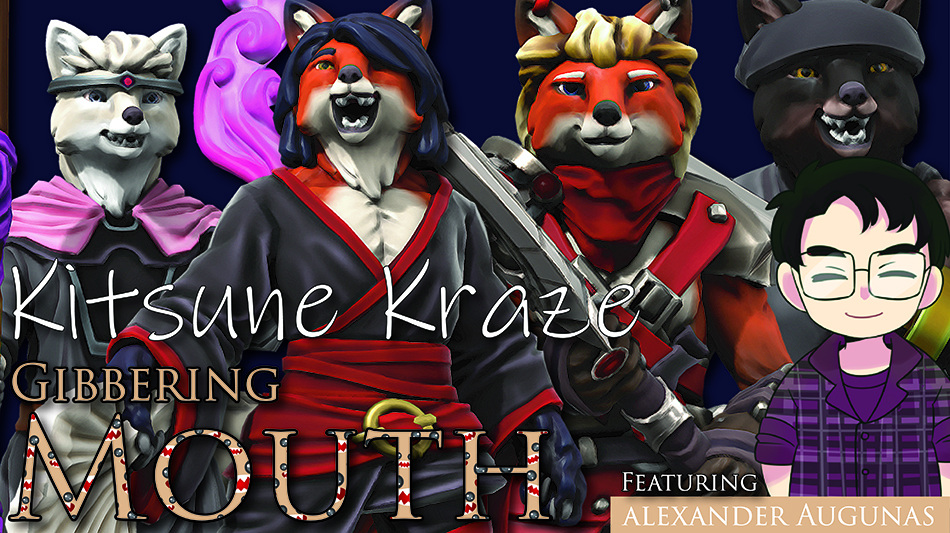Welcome to Guidance, Private Sanctuary’s source for tips and techniques for the Pathfinder Roleplaying Game, written by Everyman Gamer Alexander Augunas. Today, we’re going to be talking about critical misses.
Of all the homebrew rules systems in the game, Critical Fumbles are by far the most popular from what I’ve seen. Maybe there are tons of GMs out there who just love to rub a little extra salt into their PCs’ wounds. Today, we’re going to be looking at critical misses, what they add to the game (and what they don’t), and some handy ways to handle critical misses in your roleplaying game.
What is a Critical Miss?
A critical miss is some sort of hampering penalty that is placed on a player when he or she rolls a natural 1. Critical misses are something of a sacred cow of GMing. Many GMs implement critical misses into their home games whether they mean to or not. It is actually quite fascinating, because of what the Core Rulebook says on the matter. Or rather, what it doesn’t say.
If you read the Core Rulebook, natural 1s have only ever been penalized in the game on attack rolls. Skill checks, saving throws, and virtually all other types of d20 rolls have no rules about what happens when you roll a natural 1. It simply doesn’t matter for any other part of the game. But GMs LOVE to make it matter. I’ve done it and I know that you’ve done it too. The reason GMs do this varies from person to person. Some GMs see it as a great opportunity to take some power away from the PCs, buying their encounters extra time to live. This happens when a GM doesn’t design his encounters to be challenging and tries to artificially inject challenge into his game. Those kinds of GMs RELISH the natural 1 because they feel like it is an open window for GM fiat.
That is not the best way to handle critical fumbles.
Spell It Out
The reason why fumbles should never be based on GM whims is because their counterparts, critical hits, are not based on random whims. You do not randomly tell your player that he is decapitated after being subjected to a critical hit (unless the weapon is vorpal, of course). You calculate the damage and when it kills him, then you embellish the kill with the description of your player’s head sailing across the battlefield. When a critical hit happens, everyone knows what will happen. The same dignity needs to be given to critical fumbles in order for them to be fair.
Additionally, it should be a similar penalty to what is experienced during a critical hit. For example, here’s how I handle a critical miss.
- Step 1: A natural 1 is rolled on a roll that automatically fails on the result of a natural 1. This is limited to attack rolls, CMB checks, and saving throws so rolling a natural 1 on, say, a skill check does not trigger a critical fumble because skill checks do not automatically fail on a natural 1.
- Step 2: Confirm the critical miss. I have my players roll the attack roll / CMB check again at the same bonus against the same AC / CMD / whatever. If they fail the roll a second time, they critically fumble. In this way, critical misses are not a “1 and I’m dead,” your players have a chance to protect themselves from the critical miss. In this way, you can also justify the horrors that you will do to your PCs.
- Step 3: We’ve officially crossed over into “GM decides territory,” now. In order to make the fumble comparable to a critical hit, the creature that made the critical miss needs to be on the receiving end of some damage. Instead of making the damage arbitrary (aka random), I’ve decided to use the following: a creature that confirms a critical miss provokes an attack of opportunity from all creatures that threaten it. Additionally, the creature is flat-footed until the start of its next turn. This makes the critical fumble dangerous, but not “auto-death” dangerous. That is, unless the target is surrounded by a LOT of monsters. This also gives the rogue a bit of an extra boost: thanks to uncanny dodge, she can’t be caught flat-footed so part of the scare-factor of the critical miss is diminished for her. This rule also increases the value of Combat Reflexes, both for players and for NPCs. Why, you ask?
#1 Rule of Critical Misses
The #1 rule of critical misses is that you, as the GM, will critically miss more than your players will. You control a LOT more creatures, so the chance of rolling a natural 1 increases for you significantly. So chances are, whatever rules you make for critical misses will apply against you more than anyone else sitting at the table.
That is why you need a fair, previously agreed upon set of rules for critical misses if you choose to implement them. If you are not fair, your players will resent you for going “easy” on your monsters while trying to lob their heads off unceremoniously whenever a natural 1 shows up. The above rule is fair, easy to understand, but most importantly, IT PROBABLY WILL NOT KILL ANYONE. It is just a penalty for a miss, not a death sentence.
Paizo Shoutout —Fumble Decks
A discussion on critical fumbles would be incomplete without talking about Paizo’s fumble deck. I own this deck, and let me tell you it is awesome. Using the above rules, I would handle the critical fumble deck by telling my players, “Instead of being flat-footed and taking the attack of opportunities, you may draw a critical fumble card.” For some characters (especially Dex-based ones), this is probably going to be a godsend. However, the deck includes stuff like getting your toes chopped off or being planeshifted to a different plane of existence, so it is always a risk. The fumble deck is a great way to liven up critical misses, but only when your PCs want to take the critical fumble. Sometimes they won’t want to. Other times they’ll be surrounded by three or more giant monsters ready to swing at them and they’ll take the card to protect themselves. In the long run, it is entirely up to them.
And that, folks, is all I have to say about critical misses for now. What do you think? Do you use critical misses in your home games? How has it turned out for you? Have you ever had a critical miss forced down your throat? Tell us about the experience! Leave your comments, questions, and anecdotes below and I’ll catch you next Monday for another installment in the GM’s Guide!
Alexander “Alex” Augunas has been playing roleplaying games since 2007, which isn’t nearly as long as 90% of his colleagues. Alexander is an active freelancer for the Pathfinder Roleplaying Game and is best known as the author of the Pact Magic Unbound series by Radiance House. Alex is the owner of Everyman Gaming, LLC and is often stylized as the Everyman Gamer in honor of Guidance’s original home. Alex’s favorite color is blue, his favorite Pathfinder Race/Class combination is kitsune hunter, and, yes, he plans on LITERALLY catching you next week. Predator-style.






Little error in your second paragraph, saving throws automatically fail on a natural 1; see the last paragraph on page 180 of the CRB.
I’ve never played in, nor ran a game that uses a the concept of critical misses. If we roll a natural 1 on an attack or saving throw, it simply misses or you fail and we leave it at that. I have the benefit of drawing for other peoples’ experiences with GMs who did use Critical Fumbles and they hated them. As in, the kind of GM who went, “Oh, you rolled a natural 1? Roll again… oh, you fumble? And you… cut off/crippled a limb, roll 1d4 to see which arm or leg you hit.”
I kind of feel your fumble rolls unfairly harm martials over casters. If a caster is doing his job right, he’s not being threatened by anyone, so if he rolls a 1 on a saving throw, or an attack throw (like with a scorching ray), and fumbles, nothing overly bad happens to him. Same with archers.
Only the melee characters get punished for fumbles, which kind of sucks.
If I were to implement a critical fumble rule, it would probably be similar, though a bit different. Something like, if you fumble with an attack roll, you provoke an attack from your target but you take an additional +50% damage form the attack. If you fumble a save, then it is 50% more effective, either it deals 50% more damage, or lasts 50% longer than normal, your choice if it deals damage and has a duration. With a ranged attack roll, I would have them roll the attack roll again, along with a d8, and the attack instead affects one of the squares around the original target, determined by the d8 roll.
This means an archer who fumbles might hit an ally, or a spellcaster might hit the fighter with his Enervation. I know it doesn’t unduly punish the ranged attacker, but not all fumbles affect the one who fumbled in the first place. Sometimes the fumble doesn’t hurt you, but hurts someone else.